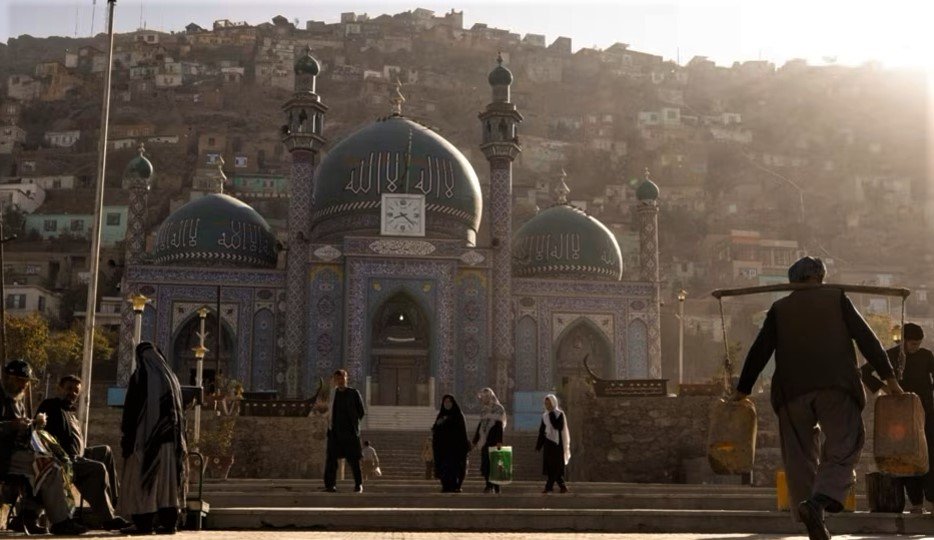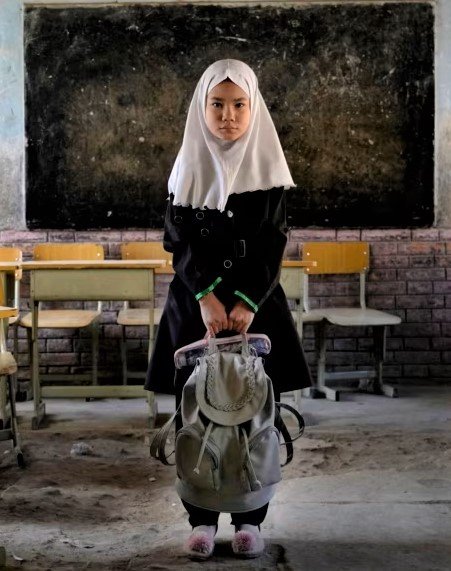by Abubakar Siddique & Mansoor Khosrow

When the Taliban seized power in 2021, Afghanistan’s Shi’ite Hazara minority feared that the historically persecuted community would once again become the main target of Taliban atrocities.
During its first stint in power from 1996 to 2001, the Taliban terrorized the group, wresting control of Hazara regions in Afghanistan through a campaign of targeted killings.
After regaining power, the Sunni militant group tried to assuage Hazaras’ fears of discrimination and persecution. The Taliban visited Shi’a mosques in the Afghan capital and deployed its fighters to protect ceremonies marking the Shi’ite month of Muharram.
But members of the community have accused the Taliban of backtracking on its promises to protect Shi’a and grant them the right to freely observe their faith.
Last week, the Taliban prevented Shi’a from celebrating an important religious festival. The militants have also restricted the teaching of Shi’a jurisprudence in universities in Afghanistan. In February, the Taliban reportedly banned marriages between Shi’a and Sunnis in northeastern Badakhshan Province.
The Shi’ite community has accused the Taliban of failing to prevent deadly attacks on Hazaras by the rival Islamic State-Khorasan (IS-K) extremist group. Meanwhile, rights groups have documented the forced evictions of Hazaras by the Taliban, a predominately Pashtun group, in several provinces.

“The Taliban are becoming increasingly intolerant of public expressions and displays of the Shi’ite religious faith,” said Niamatullah Ibrahimi, senior lecturer at Australia’s La Trobe University. “If it becomes a pattern, it will clearly limit the religious freedom of Shi’a, especially ceremonies that are often public in nature.”
Taliban fighters prevented Shi’ite residents in Kabul from publicly celebrating Eid al-Ghadir on July 7. The festival celebrates what Shi’a believe is the day that Prophet Muhammad declared Ali, a cousin, and son-in-law, his successor.
But the festival clashes with the Sunni belief that Abu Bakr, the first Muslim caliph, was the rightful successor to Prophet Muhammad. These conflicting beliefs are among the most important differences between the two main Muslim sects.
‘They Want To Eliminate Minorities’
In May, the Taliban banned the teaching of the Shi’a Jafari School of Jurisprudence at Bamiyan University. It is not clear if the ban has been extended to all universities in Afghanistan. Most residents in the province of Bamiyan, in central Afghanistan, are Shi’a.
Nematullah, an Islamic studies student at Bamiyan University, said they have been forced to study the Sunni Hanafi school of jurisprudence that is followed by the Taliban.
“We were told that if we raise our voice, we will be taken away and tortured,” the 20-year-old told RFE/RL’s Radio Azadi, adding that the Taliban ban was forcing Shi’a to give up their education or leave their homeland.
Mohammad Hassani, another student at the university, accused the Taliban of trying to “eliminate minorities and their religions by force.”
Seyyed Mohammad Hossein Rizwani, a prominent scholar at the Shi’a Ulema Council of Afghanistan, told Radio Azadi that the Taliban’s ban on teaching Jafari jurisprudence contradicts “the spirit of Islamic brotherhood and national unity.”
Although a census has never been conducted, Shi’a are believed to make up around 15 percent of Afghanistan’s 40 million people, which is largely Sunni. Hazaras account for the overwhelming majority of Shi’a in the country.
During the 19th century, Afghan monarchs attempted to forcibly convert the Hazara, seize their lands, and bring Hazara regions in the country’s central highlands under the control of the central government, campaigns that killed thousands and forced even more to flee their homes, including many to British India. Hazaras who resettled in Kabul and other cities suffered discrimination and were often employed only in low-paying jobs.
In a significant step to address the historical grievances of the Hazaras, Afghanistan’s 2004 constitution permitted Shi’a to use Jafari jurisprudence in court cases involving personal matters. The community also gained an unprecedented share in power during the Western-backed political order that emerged after the U.S.-led invasion in 2001.
Only The Beginning?
Since regaining power in August 2021, the Taliban has mostly maintained the state’s administrative structure. But it has scrapped the 2004 constitution and laws that guaranteed freedoms and rights to Afghans, particularly to religious minorities and women.

The Taliban’s theocratic government is made up almost entirely of senior Taliban members, with no women and just a few non-Pashtuns.
“There are deep fears within the community that this could be only the beginning of systematic discrimination against the Shi’a and the representation of their understanding of Islam in the country’s laws, society, and politics,” said Ibrahimi of La Trobe University.
Niala Mohammad, the director of policy and strategy at the nonprofit Muslim Public Affairs Council in Washington, said the Taliban has failed to protect Afghanistan’s Shi’ite minority from the IS-K, which has killed scores of Hazaras in attacks on schools and mosques since the Taliban takeover.
“[The Taliban] continue to harass and target those that do not adhere to their distorted view of Islam,” said Mohammad, who was previously the South Asia analyst for the US Commission on International Religious Freedom. “Particularly Shi’a Hazaras, whom they view as heretics.”
She said the Taliban’s mounting restrictions on the Shi’ite minority “emboldens Shi’a persecution by other religious extremists across the region and deepens the sectarian divide.”–RFE/RL

The High Asia Herald is a member of High Asia Media Group — a window to High Asia and Central Asia

